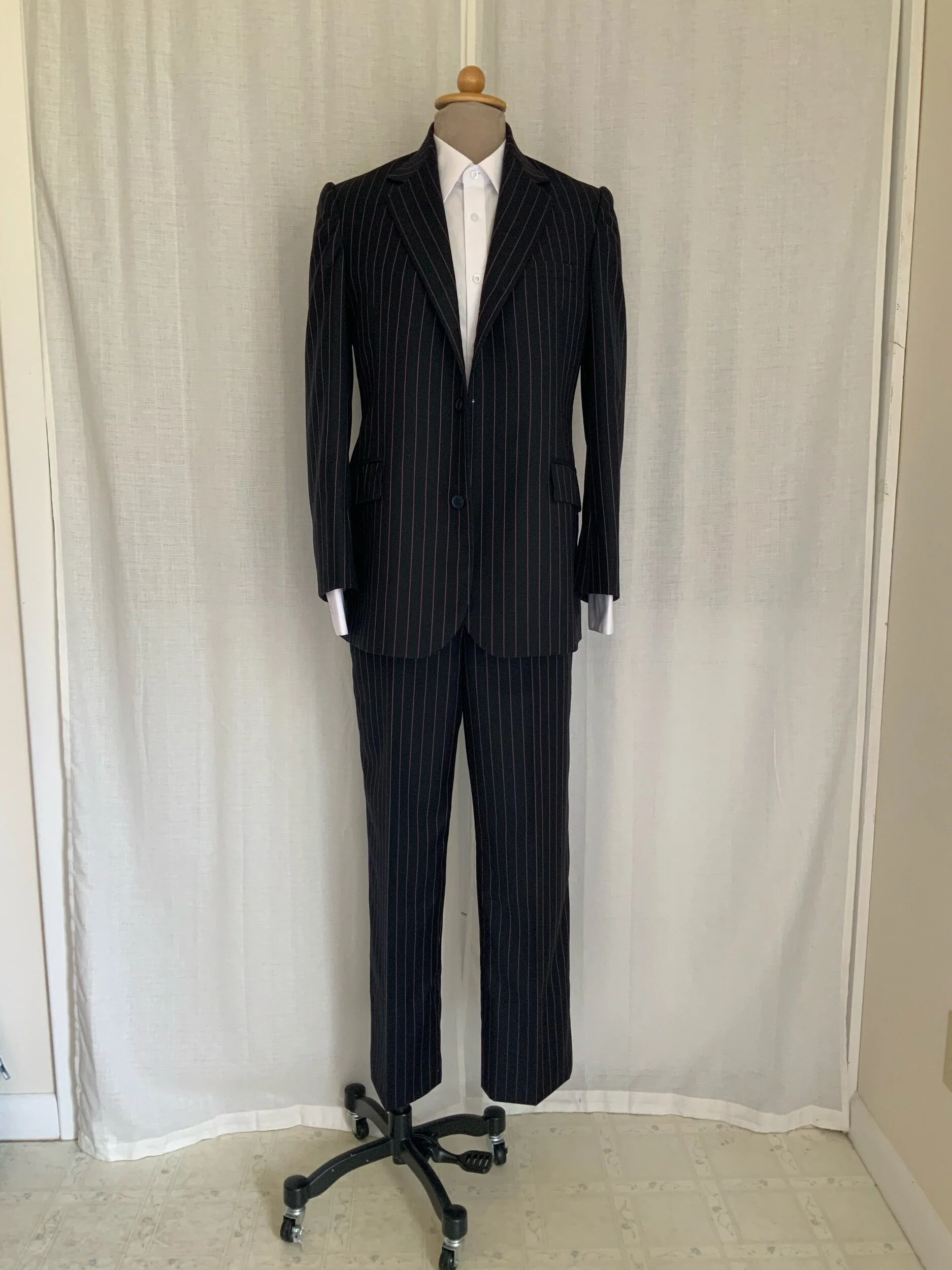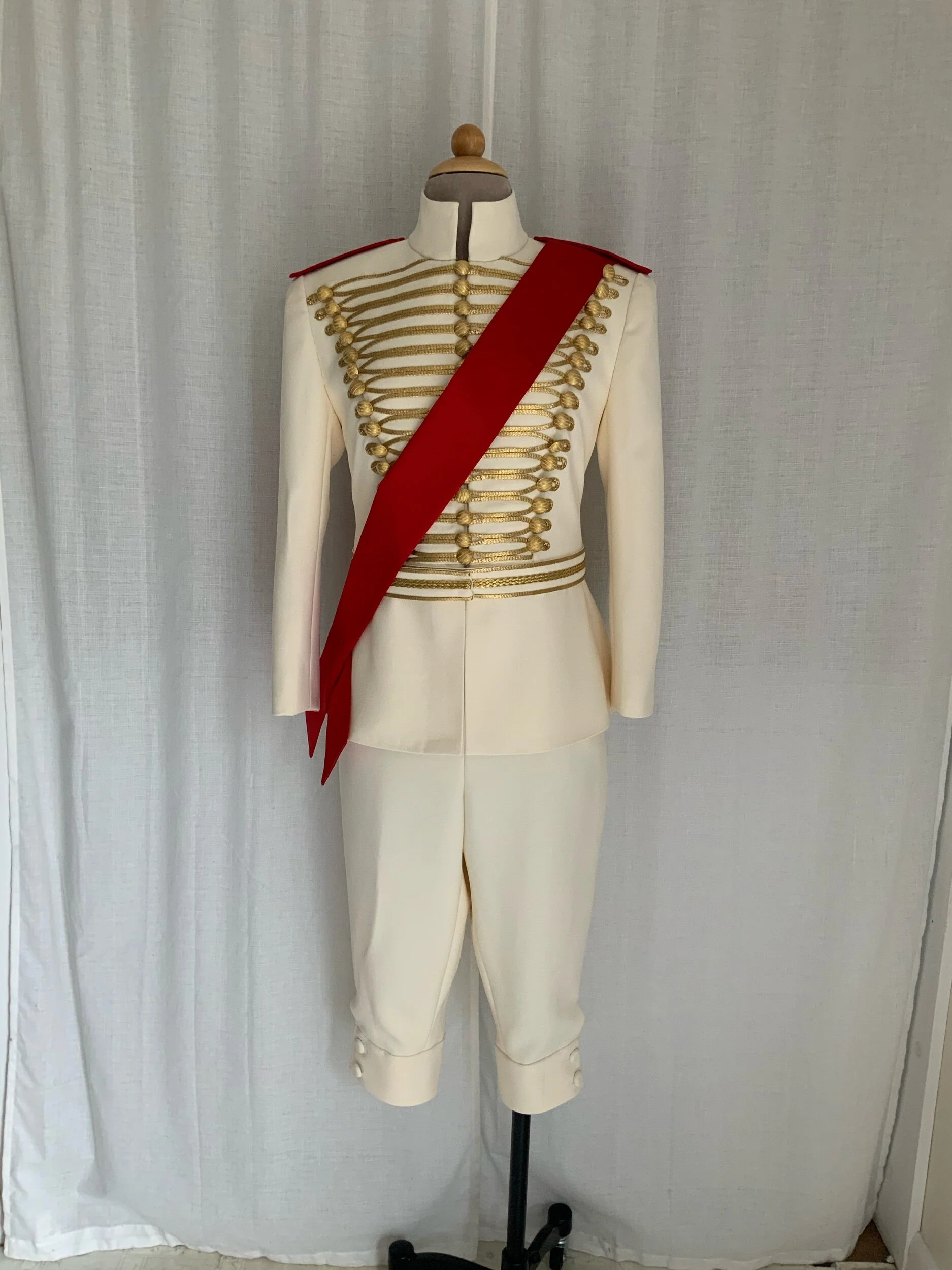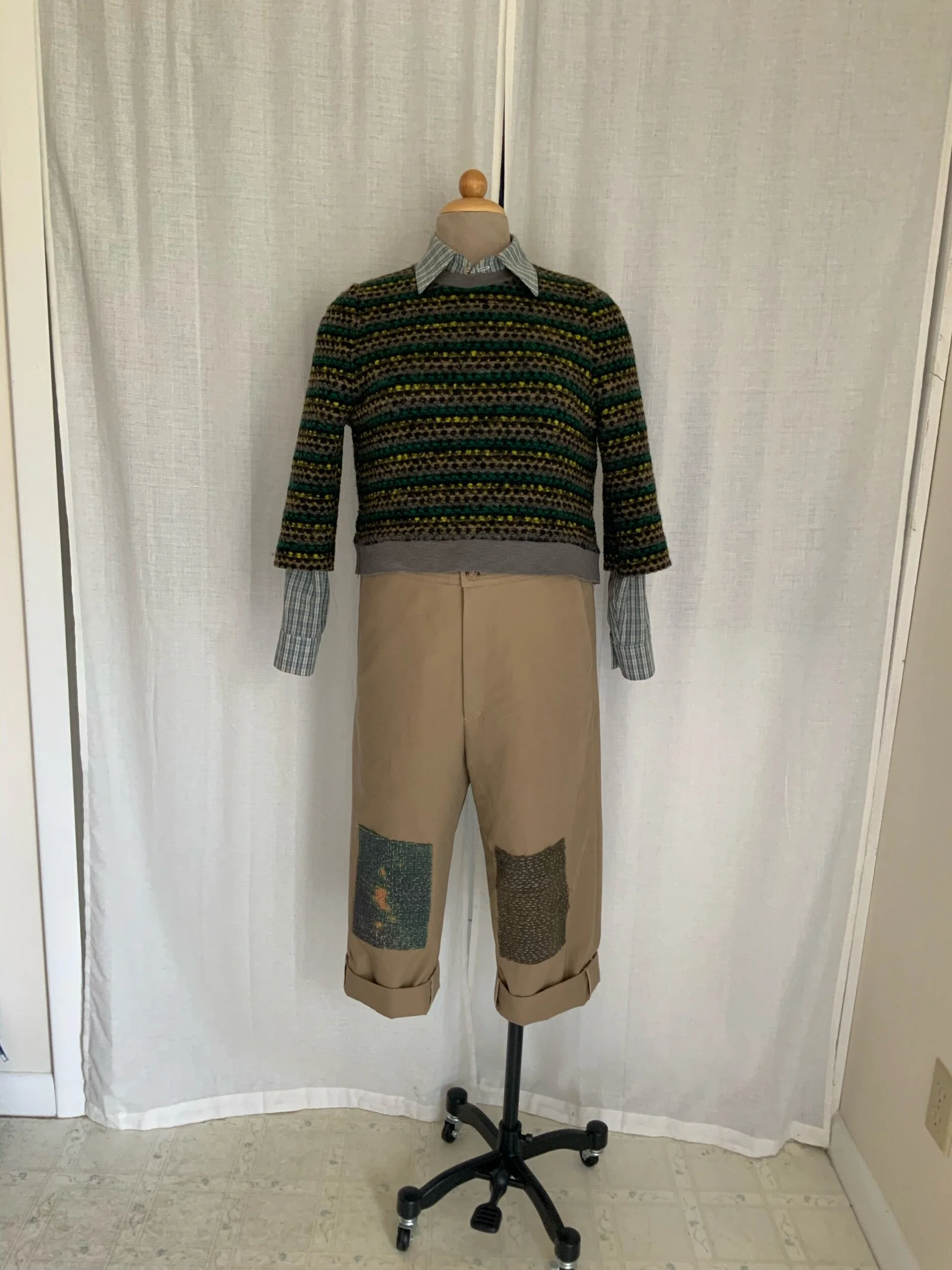Grad School - Third Year
The main focus of the third year is to complete a thesis project. The Costume Production candidates are required to complete three full garments, including necessary undergarments, of our choice with our chosen topic, as well as a paper that explores the topic and a journal of our process. To connect my interest in working in opera and focusing on tailoring, I found the place where those two ideas meet is the tradition in opera of a woman playing a male characters, known as a “trouser role”. In this thesis paper, I will be researching the history of trouser roles from their connection to the castrato performers of the 17th and 18th centuries, to their rise as the heroic lead, or their modern translation as the child or pageboy.
In the making the costumes, I will be interpreting renderings from existing designs of trouser roles from operas previously performed at the Washington National Opera, with special permission by WNO Costume Shop Director Marsha LeBoeuf. In this study, I will be creating four costumes that each use a different technique to reshape the female performers body to appear more masculine while also keeping much of their feminine shape; finding a balance that mirrors the juxtaposition of a higher range female voice portraying a male character. After analyzing each of the four characters, I assigned each an adjective to fine their version of masculinity, Romantic, Comedic, Heroic, and Adolescent, to help influence the interpretation of the design and body of the performer.
Due of the COVID-19 pandemic and the closure of school buildings, this project was slightly adjusted.
To obtain a copy of the thesis paper, including research and process, please contact via email.
She Wears the Pants: A Study of Masculinity in Operatic Trouser Role Costumes
Boston University - MFA Costume Production Thesis
Completed May 7, 2020
The four characters and designs in this thesis study:
Andronico
From George Frideric Handel’s Tamerlano
”Romantic” Masculinity
Based on the design by David Zinn for Washington National Opera, 2008
Maffio Orsini
From Gaetano Donizetti’s Lucrezia Borgia
”Heroic” Masculinity
Based on the design by John Pascoe for Washington National Opera, 2008
Prince Orlofsky
From Johann Strauss II’s Die Fledermaus
”Comedic” Masculinity
Based on the design by Zack Brown for Washington National Opera, 1990
Hansel
From Engelbert Humperdinck’s Hansel & Gretel
”Adolescent” Masculinity
Based on the design by Timm Burrow for the Washington National Opera, 2007




